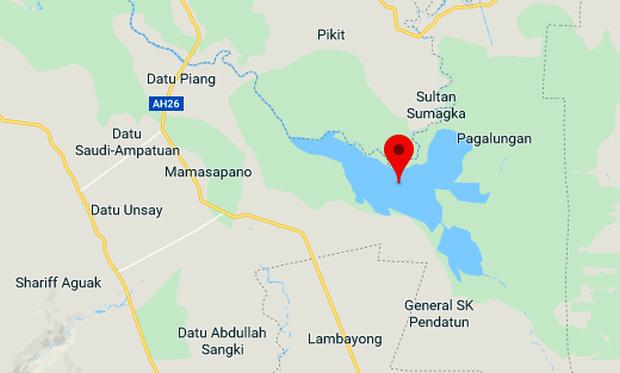Still unclear who will control gas reserves in proposed Bangsamoro region

Liguasan March (with marker) in Maguindanao (Image from Google Maps)
Who will control untapped oil and natural gas reserves in the envisioned Bangsamoro region?
The answer isn’t clear as there seems to be a disconnect between what President Rodrigo Duterte has promised Muslim leaders and what is stated in the proposed Bangsamoro Basic Law (BBL).
The President on Saturday assured the Bangsamoro people that the national government would not touch any potential energy resources in the envisioned Bangsamoro territory, including gas deposits believed to be beneath the Liguasan Marsh with an estimated value of $1 billion.
“The government will not touch that. That’s yours. Nobody will interfere,” he said in Filipino during a speech in Davao City.
But both the Senate and House versions of the BBL state that fossil fuels – including petroleum, natural gas and coal – would be “co-managed” by the Bangsamoro and national governments with the revenues “shared equally” between them.
Article continues after this advertisementThe two bills state that there will be “joint exploration, development and utilization” between the national government and the Bangsamoro government of any fossil fuels in the new Muslim-majority region.
Article continues after this advertisement“The Bangsamoro government and the national government shall jointly exercise the power to grant rights, privileges, and concessions over the exploration, development, and utilization of fossil fuels (petroleum, natural gas, and coal), and uranium in the Bangsamoro,” the House version says.
The Senate retained the wording but added the qualifier “subject to the provisions of the 1987 Constitution and national laws.”
However, this is only true of fossil fuels. All other revenues from development of natural resources in the Bangsamoro region, including mines and minerals, “shall pertain fully to the Bangsamoro government,” according to the two bills.
“In the case of fossil fuels (petroleum, natural gas and coal) and uranium, the same shall be co-managed and the revenues shared equally between the national government and the Bangsamoro government,” the Senate version states. The House version is the same except it states “may” instead of “shall.”
The House and the Senate passed their respective versions of the BBL earlier this month.
The two chambers will meet tentatively on from July 9 to 13 to iron out differences and agree to a final version that will be ratified in time for the President’s signing on July 23, the day he delivers his third State of the Nation Address.
The question of who controls oil and gas could be a sore point between Muslim leaders and the government, considering the vast potential for development of Mindanao, pockets of which have been riddled with conflict for decades.
Maguindanao Rep. Zajid Mangudadatu recently noted in an interview over AM radio dzMM that the area beneath Lake Buluan in Liguasan Marsh contained 68 billion cubic feet of gas, based on a government survey.
“I think that can be developed in 25 years. I am very optimistic that the Philippines will be the next Dubai,” he told dzMM.
Under the two versions of the BBL, the national government, through the Department of Energy, and the Bangsamoro government “shall adopt a competitive and transparent process for the grant of rights, privileges, and concessions in the exploration, development and utilization of fossil fuels and uranium.”
The Senate added a provision that the use of fossil fuels for power generation “shall be reduced to achieve sustainable development goals promote low carbon sustainable energy generation policies.”
The two Houses also agreed that bona fide Bangsamoro inhabitants would be given preferential rights over the exploration, development, and utilization of fossil fuels and uranium within the area.
Another provision present in both versions states that the Bangsamoro Parliament shall enact a law recognizing the rights of indigenous peoples in relation to the natural resources within their domains, including their share in revenues.
In his speech, the President said the resources “will remain in your (Moros’) control and possession but you just have to pay the taxes and the services that the government would spend.”
But unless the bicameral conference committee adopts the President’s pledge and overhauls those provisions, the BBL will mandate equal sharing of revenues from oil and gas between the national and Bangsamoro governments. /atm